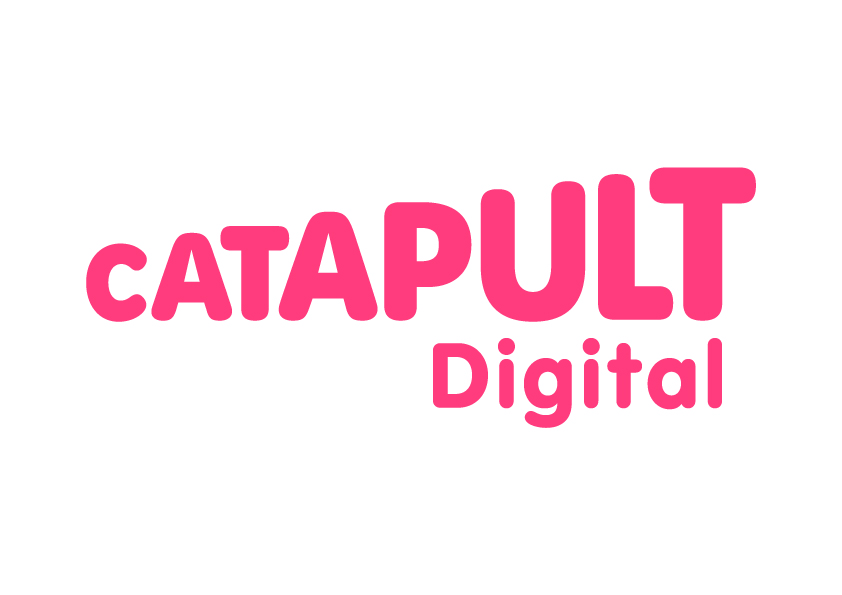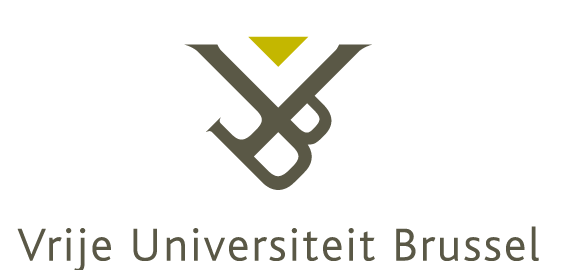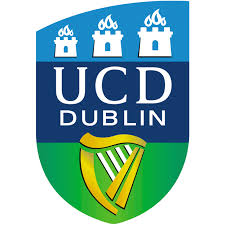Blockchains and Distributed Ledgers
King's of the Block: Blockchains and Distributed Ledgers

The World-Wide-Web allowed organizations to share and disseminate information easily and quickly. As a consequence, most major companies and
organizations undertook business process engineering (BPE) or re-engineering (BPR) projects in the 1990s to design their customer-facing processes and
then their internal processes around the possibilities of the Web. The Web truly was revolutionary.
However, making information available to another person or organization does not necessarily mean they have seen it. Even if they have
seen it, they may later plausibily deny or repudiate it. How can a company ensure that its trading partners and collaborators have the
same information and all agree that they have the same information? Here, a new technology, the blockchain or distributed ledger technology,
can provide this. This technology creates a stateful shared state between parties, where everyone knows the same information, and everyone
knows that everyone knows the same information, and everyone knows that everyone knows that everyone knows the same information, and so on,
ad infinitum. Game theorists call this situation common knowledge. No party can plausibly deny later that they did not know the shared state.
In other words, where the Web provides a platform for sharing information, distributed ledger technologies provide a platform for
common knowledge, and hence for epistemic reasoning about that shared information. And just as the adoption of the Web led companies to re-engineer business
processes within companies, the adoption of blockchains will lead to re-engineering of the processes between companies.
The Blockchain was developed for the crypto-currency Bitcoin and it cleverly combines:
- Replicated databases, to support resilience and redundancy
- Hashing technologies, to enable chaining of records
- Cryptographic technologies, to assure identity of participants
- Community witnesssing of records via consensus protocols, to obviate the need for any central authority.
The combination of chaining of records and community witnessing means that past records are effectively immutable. A past
record can only be changed if all subsequent ones are changed, and if the witnessing community agrees to these changes.
Like flocks of migrating birds deciding a direction to fly, the technology allows for verifiable agreement between multiple parties
without requiring a trusted central authority to attest to the agreement. And immutability of records means that the facts records
assert cannot later be repudiated. Distributed ledger technologies also provide a platform for the deployment of smart contracts, which
are self-executing programmes implementing some agreement between two or more parties.
There are currently many research and implementation challenges for these technologies, for instance:
- Conceptual frameworks to understand the design space
- Scalability and speed of execution
- Privacy and security (for example, code obfuscation for digital signatures)
- Formal verification of designs and workflows
- Managing multiple permissioned ledgers
- Readiness for production deployment (including issues of scalability, security, user-friendliness, regulatory compliance, integration with
legacy systems, etc).
As often happens in computer science, application preceeds theory, and the theorists are still trying to catch up. The research and deployment
challenges are very exciting: for these challenges to be met, both theory and practice need each other. Our focus is on both theory and
on practice, as well as having a keen interest in business applications. As a generalization, distributed ledger technologies and
platforms are still very immature and do not scale. Accordingly, real-world development projects, even proof-of-concept projects, encounter
novel bugs and challenges which typically require ad hoc kludges and fixes. Documentation is scarce and devopment experience counts
enormously. And the people running these companies are often new to business, so that, to give one recent example, they can suddenly change
the company name and somehow forget to change the scripts and pointers inside their software.
London, as a centre for global finance and financial technology, is certainly the best location to be exploring these issues at this time.
We have formed an informal discussion group at King's College London to explore these techologies, involving participants mainly from
the Department of Informatics and the Department of War Studies.
King's of the Block include:
Mustafa Al-Bassam,
Martin Chapman,
Andrew Coles,
Dan Magazzeni,
David Kohan Marzagao,
Peter McBurney,
Matthew Moran,
Josh Murphy,
Will Nash,
Agash Navaranjan,
Lukas Ondrej,
Mark Ormesher,
Richard Overill,
Steve Phelps,
Stefan Sarkadi,
Nishanth Sastry,
Gareth Tyson,
Christian Urban,
Luca Vigano,
Tomas Vitek.
Alumni: Nick Gillard,
Dominic Williams.
This page documents some of our activities, at King's and elsewhere.
- Date TBC: Implementation Challenges in Distributed Ledger Technologies. Talk by Martin Chapman to
Bitcoin Wednesday Conference, Amsterdam, The Netherlands.
- 2017-09-01 to 2019-08-31: VOLT: Voting Over Ledger Technologies. Trusted and Transparent Voting Systems.
Research project with University of Surrey, funded by EPSRC.
Amrita Dhillon, Matoula Kotsialou, Toktam Mahmoodi, Peter McBurney and Luke Riley.
- September 2017: Daniele Magazzeni, Peter McBurney and William Nash:
Validation and verification of smart contracts: a research agenda. IEEE Computer Journal,
Special Issue on Blockchain Technology for Finance, September 2017 (In press).
- 2017-08-25: Introduction to Blockchain Tech, Bitcoin & Ethereum for Application Developers. Organized by The Blockchain Connector
and King's
College London Informatics Department for students and devs. Register
here.
- 11-13 August 2017: First
Community Workshop of the Ethereum Name Service, hosted by
King's College London Informatics Department. Videos of
workshop sessions at the ENS Youtube Channel.
- 2017-06-29: Introduction to Blockchain Tech, Bitcoin & Ethereum for Application Developers. Talk by Lawrence Kirk of
Extropy. Organized by The Blockchain Connector
and King's College London Informatics Department for students and devs. Register here.
- 2017-06-22: Distributed Ledgers and Smart Contracts. Talk by Peter McBurney for
Norton Rose Fulbright Business Briefing, Amsterdam, The Netherlands.
- 2017-06-19: Verification of Smart Contracts. Talk by Peter McBurney at
Blockchain and the Constitution of a New Financial Order: Legal and
Political Challenges, Faculty of Laws, University College London, London, UK.
- 2017-06-16: Verification and Validation of Smart Contracts. Talk by Peter McBurney to
Smart Law 2017, Workshop on Blockchain, Smart Contracts and Law at
16th International Conference on AI and Law,
London, UK.
- 2017-05-27/28: LawTech Hackathon. Hackathon for Applications of Technology in Law. Organized by
KCL Tech Society, Informatics Department,
King's College London and Norton Rose Fulbright London, UK.
- 2017-05-22: Crypto-currencies. Talk by Peter McBurney,
Norton Rose Fulbright London, UK.
- 2017-04-27: Distributed Ledgers and Smart Contracts. Talk by Peter McBurney for
Seminar on e-Bills and Smart
Contracts: End of the Paper Trail?, Norton Rose Fulbright, London, UK.
- 2017-04-26: Panel on Legal Aspects of Distributed Ledger Technology. Chaired by Peter McBurney. Blockchain Regulation and Compliance Summit,
Quantech Conference 2017, London, UK.
- 2016-11-02: New Developments in DLT. Talk by Peter McBurney to
Exploring New Frontiers of Blockchain Technology, Tech Event sponsored by Gowling WLG, Santander and BTL Group, London, UK.
- 2016-10-18: Introduction to Blockchains and Distributed Ledgers. Lunch and Learn Talk by Peter McBurney and others to Bank of America Merrill Lynch,
London, UK.
- 2016-10-04: The Impact of Technology on Legal Services, Seminar for Commencement of New Legal Year, organized by The Law Society and
the Bar Council of England and Wales, Inner Temple, London. Talk by Peter McBurney.

- 2016-08-31: Building a Blockchain POC for a Major Financial Institution: The Capabilities and Limitations of
Existing Technologies. Talk by Martin Chapman at
Bitcoin and Blockchain Technologies Workshop,
University of Stirling, Scotland.

- 2016-08-15: Interactions between multiple blockchains. NMS Undergraduate Research Internship project by
Alex Jackson, supervised by Martin Chapman and Peter McBurney.
- 2016-08-15: Participation by Peter McBurney in UK Digital Catapult Consultation Meeting on
Smart Contracts, Digital Catapult, London, UK.

- 2016-07-04: Participation in UK Department
of Business, Innovation and Skills (BIS) Roundtable to discuss the regulatory framework for Distributed Ledgers and Smart Contracts,
held at the Digital Catapult, King's Cross London.

- 2016-07-04: Evolutionary Game Theory and Blockchains. Talk by Peter McBurney to Annual Retreat of
the Centre for Cross-Disciplinary Approaches to Non-Equilibrium Systems (CANES), King's College London.
- 2016-06-23: Artificial Intelligence and Blockchains. Talk by Peter McBurney to
Foundation of German Business (SDW), London Regional Group, London.

- 2016-06-01: Building Proof-of-Concept Blockchains for Financial Transactions. KURF Summer Research
Fellowship project to assess alternative distributed ledger platforms. Lukas Ondrej, supervised by Martin Chapman
and Peter McBurney.
- 2016-06-01: Start of EPSRC Impact Acceleration Project on Blockchains and Nuclear Non-Proliferation. Investigators:
Matthew Moran
and Peter McBurney. This project is an exploratory project to assess the feasibility of distributed ledger technologies for monitoring and
control of weapons and hazardous materials.

- 2016-05-25: Lunch Discussion on Bitcoin and Blockchains by Peter McBurney with Innovation Team, Law Society of England and Wales,
London.

- 2016-05-20: Public Lecture on Distributed Ledger Technologies by Peter McBurney, as part of the Vloebergh Leerstoel Lecture Series of the
Vrije Universiteit Brussel, Brussels, Belgium.

- 2016-05-18: Glass Houses: Transparency and Privacy in
Information Economies. Talk at KCL by Dr Sarah Meiklejohn, Information Security Group,
Department of Computer Science, and Department of Security and Crime Science, University College London, about her recently-awarded
EPSRC project on trust, privacy, and security in distributed ledgers.

- 2016-05-11: The Law and Bitcoin. Talk at KCL by Noel McGrath, Sutherland School of Law,
University College Dublin, on the legal aspects of Bitcoin and distributed ledgers.

- 2016-04-27: The Potential for Blockchain. Talk by Mustafa Al-Bassam at
Innovation in Money Transfer Forum,
Secure Trading, London, UK.
- 2016-04-06: Talk at KCL by Leanne Kemp, Founder and CEO of Everledger. Everledger
is a data aggregator using distributed ledger technology to track the provenance of diamonds and other precious objects. The company characterizes each
diamond with a set of physical and chemical metrics which identify it uniquely, and this information is then added to a permissioned blockchain.
Customers of the service, sich as insurance companies, are then able to interrogate and reason over this data, to identify the
provenance of a stone and its descendants.

- 2016-03-23: Blockchain in Government. Panel discussion by Peter McBurney at Bitcoin and
Blockchain Leadership Forum, London. Main argument: If Governments did not have geographic monopolies, then Challenger Governments, just like Challenger
Banks, would be using distributed ledgers.
- 2016-03-09: Introduction to Smart Contracts. Talk by Peter McBurney at Breakfast Seminar on Smart Contracts, Norton Rose Fulbright, London.
- 2016-01-21: Blockchains and Distributed Ledgers in 2016. Talk by Peter McBurney at Breakfast Seminar on Unlocking the
Blockchain, Norton Rose Fulbright, London.
- 2015-11-19: Talk at KCL by Vlad Zamfir, of Ethereum, on using economic game theory to design distributed ledgers to withstand malicious attacks. The methods
of economics work to design against so-called rational participants, those who would not incur greater costs than the benefits they expect to receive.
But what about malicious participants unconcerned with costs?

- 2015-11-09: Formal Semantics of Protocols. Talk by Peter McBurney at DevCon1, Ethereum Developers Conference, Gibson Hall,
London.

- 2015-11-07: Participation in the first Internet of Things and Distributed Ledgers Hackathon, Barclays Rise Hackspace, Notting Hill, London,
as Team B-Sure. (Including: Martin Chapman,
Peter McBurney, and Lukas Ondrej)
- 2015-06-10: Information Provenance and Distributed Ledgers. Talk by Peter McBurney at Workshop on Non-Standard Data Analysis for
Nonproliferation. International Atomic Energy Agency, Vienna, Austria.




























